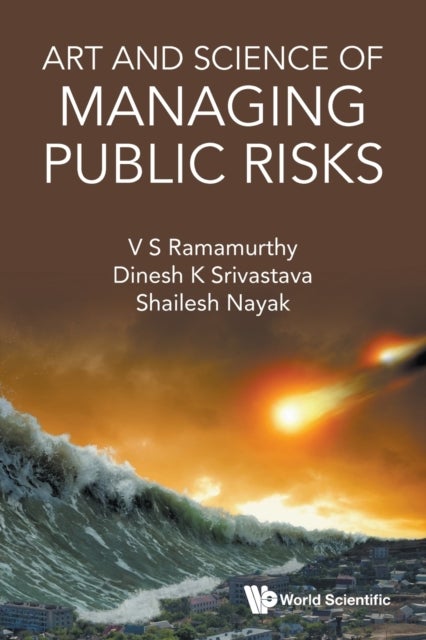
Art And Science Of Managing Public Risks av V S (National Institute Of Advanced Studies India) Ramamurthy, Dinesh Kumar (National Institute Of Advance
719,-
The COVID-19 and the onslaught of Climate Change have exposed the fragility of our lives and ecosystem. Natural disasters like asteroid impact, earthquakes, tsunamis, volcanic eruptions, floods, cyclones, etc., and pandemics like plagues, smallpox, cholera, tuberculosis, malaria, etc., have been man''s nemesis from the beginning of time. This list of public risks has now expanded to include pollutions, industrial disasters, and very many new, confusing and emerging technologies.How have governments handled these public risks? How have they convinced people to take precautions under such emergencies? What measures does one take for managing them, and for the rescue, relief, and rehabilitation of the masses? And most importantly, how does one prepare the masses to face the risks without panicking? It is argued that sermons, dictates, and discourses may not work in democratic societies. Rather, one needs a new breed of risk communicators who can enter into a dialogue with the people to pr








